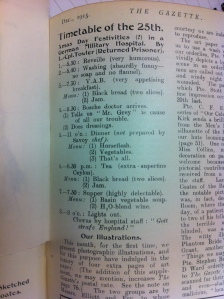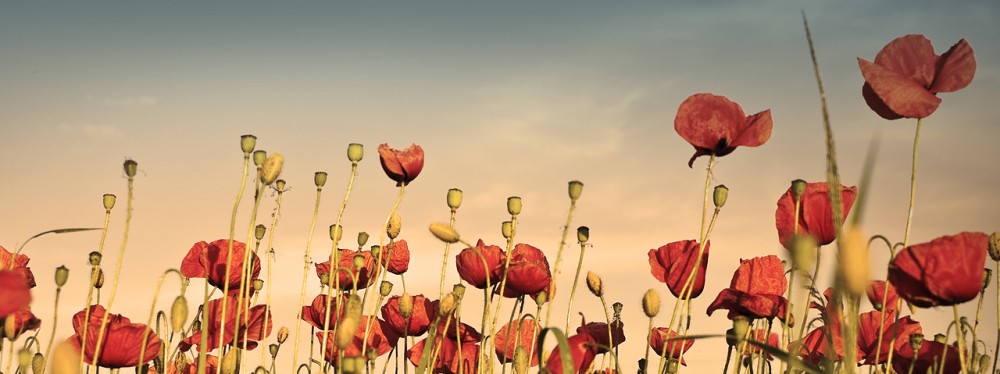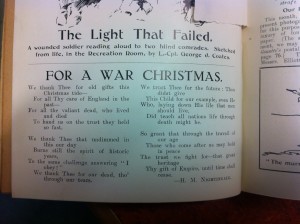The December edition of the 3rd London General Hospital Gazette was produced with some Christmas cheer in mind, as it includes a poem “For a War Christmas” and a Timetable of the 25th. A full report of Christmas at the hospital does not appear until February, as both the December and January editions were sent to the printers before Christmas.
The February edition even carries an explanation of why the January one did not have an account of Christmas
…a cautious scribe is shy of effervescing over events which, at the moment of writing, have not yet taken place… It would have been sae enough to compose an “intelligent anticipation” in the past tense, asserting that Yuletide had been a stunning success – and the risk of fire, earthquake, or Zep bombs preventing the consummation of the prophecy was one which would have deterred no modern journalist from so congenial an exercise of smartness.
It also has a write up from the Matron, describing Christmas at the hospital. On Christmas Eve, all the nurses went round all the wards with Chinese lanterns, singing Christmas carols. The Ladies’ Committee of the hospital had spent the weeks beforehand gathering presents to make Christmas stockings for all the men, which the nurses put on the ends of their beds for the morning and had what the Matron describes as “the greatest joy at Christmas… watching the men wake up and find them in the morning.” Buttonholes were given out on Christmas day by Matron and Mrs Bruce Porter, the Australian men got wattle (better known as acacia) in theirs. Dinner was served in each ward, with turkey, plum pudding and crackers. Queen Amelie of Portugal, who was a nurse, came in specially to have dinner with her patients – even getting a special cheer at the concert party which was given later. HRH Princess Louise, Duchess of Argyll, attended the afternoon tea part of the day with a special message from the King to the men – conveying his pride in them and wishes for a speedy recovery. Afternoon tea also included a cinema showing, as it had been recently gifted by a Mr Nichols, an American who was a friend of the Commanding Officer. It was all very different from the timetable of the 25th in a German Military Hospital which appeared in December’s Gazette, written up in sarcastic fashion by a returned Prisoner of War.
The other reference to Christmas in December’s Gazette was a poem by H M Nightingale, “For a War Christmas”. Helen Nightingale appears to have been a nurse at the hospital, she frequently wrote poetry which appeared in the Gazette referring to nursing and caring for the men, as well as on the war in general:








